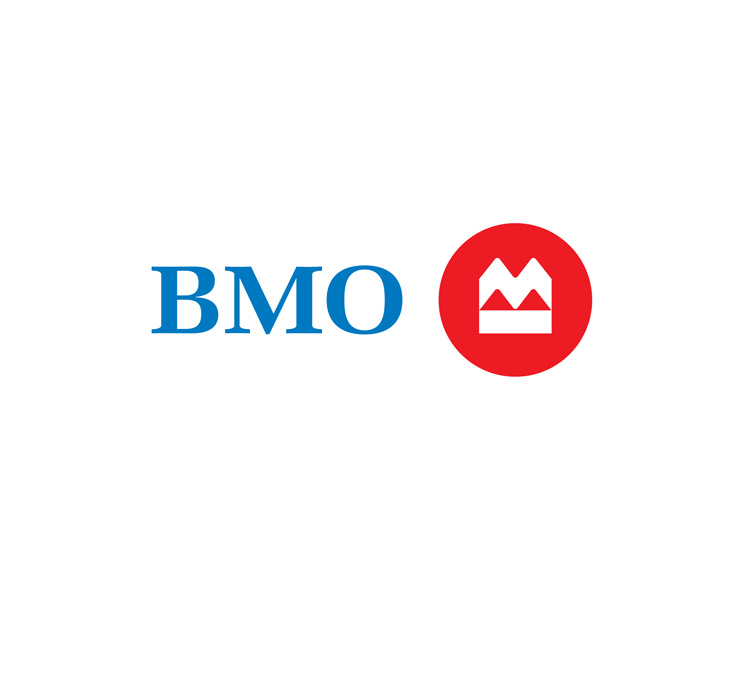- Property information such as address, tax statement, rent roll, number of commercial units
- Applicant information such as banking information, contact information and co-owner information,
Sample attestations and agreements are available on the CECRA website to allow applicants to review and prepare ahead of the application portal being opened. Final versions of the documents will be made available in the portal once it becomes available.
New! What organizations are delivering the program?
CMHC has engaged MCAP and First Canadian Title to deliver the program. Landlords may be contacted by either organization during validation and funding processes.
How does the Small Business Tenant get rent relief?
The Property Owner of an affected Small Business Tenant enters a forgivable loan agreement with CMHC for 50% of the affected Tenant’s gross rent for the months of April, May and June 2020.
The Property Owner can then forgive 75% of the Tenant’s gross rent for the months of April, May and June 2020.
The loan is forgiven if the Property Owner complies with all requirements of the Forgivable Loan Agreement.
What if the Landlord has already collected part, or all, of the Tenant’s rent for the period?
The agreement will require the Landlord sends the funds to the Tenant or, if the Tenant agrees, provide a credit for future rent payments.
What is the definition of an affected Small Business Tenant in terms of qualifying a Landlord to be eligible for the program?
- Tenant need to be a non-essential business that has temporarily ceased operations or is experiencing a 70% decline in Pre-COVID-19 revenues (as determined by comparing gross revenues in April, May or June 2020 to the same month in 2019 or compared to average gross revenues for January and February 2020)
- They can pay no more than $50,000 in monthly gross rent under a lease agreement and generate no more than $20 million in gross annual revenues on a consolidated basis at the parent level
- They have entered, or will enter, into a rent reduction agreement with the Property Owner for April, May and June 2020 (including a moratorium on eviction) under which the Tenant’s rent is reduced to 25% of the Gross Monthly Rent for the same period. Where the Property Owner and Tenant have already entered into rent deferral or abatement arrangement, such arrangement can be amended to be consistent with program eligibility criteria.
Are Franchisees eligible (Tim Hortons, McDonalds, etc.)?
Yes, provided the franchise location meets the definition of a Small Commercial Tenant
Are Residential Properties eligible?
Yes, with respect to the eligible Commercial Tenant(s) within the Residential Property.
BMO Focus: Betting Against the House? Canadian Real Estate Through the Pandemic
In our featured article In “Betting Against the House: Canadian Real Estate Through the Pandemic,” BMO Senior Economist
Next. BMO Focus: Betting Against the House? Canadian Real Estate Through the Pandemic

Mike Beg
Head, Real Estate Finance
Send Message Sending message, please wait . Send a Message Send a message to the banker * Mandatory Fields Your message has been sent. The banker will be in contact with you. Send MessageMike Beg as Head, Real Estate Finance, Canada is responsible for management of BMO’s Commercial Real Estate Finance group and its client relationships across …(..)
Updated May 21, 2020; New information about the program has been highlighted in the below FAQ
On April 30, 2020 CMHC formally announced the launch of the Government’s Canada Emergency Commercial Rent Assistance (CECRA) program to aid small businesses experiencing financial hardship due to COVID-19 first announced by Prime Minister Trudeau on April 16, 2020.
The program offers forgivable loans to eligible Commercial Property Owners (Landlords) so that they can reduce the rent of their impacted Small Business Tenants by at least 75% for the months of April, May and June, 2020.
BMO has put together the following FAQ from our interpretation of the program. We will continue to update this page as new information arrives. You can also receive updates on the CECRA program by signing up on the CMHC website .
New! Who is eligible to receive funding?
Landlords that generates rental revenue from commercial property located in Canada. The program is available to Property Owners regardless of whether there is an existing Mortgage on the affected property.
New! Are Owner Occupied Properties eligible to participate in the program?
Yes, presuming the Tenant business meets the definition of an affected Small Business Tenant and the Owner/Tenant had a lease in place for the space at market rental rates on April 1, 2020.
New! Can Tenants apply on behalf of their Landlord?
No. The application for the Forgivable Loan must be initiated by the Landlord. CMHC will provide forgivable loans to the Landlord with funds transferred to the Property Owner’s financial institution.
New! How and when can I apply?
The online application portal is expected to open on May 25. Once open, Property Owners should register using the schedule below; the staggered approach is in place to assist CMHC in managing the anticipated large volume of applications,
Day
Eligible Property Owners located in Atlantic Canada, British Columbia, Alberta and Quebec with up to 10 Tenants
Eligible Property Owners located in Manitoba, Saskatchewan, Ontario and the Territories, with up to 10 Tenants
All other Property Owners in Manitoba, Saskatchewan, Ontario and the Territories
All other Property Owners in Atlantic Canada, British Columbia, Alberta and Quebec
Once registered, Property Owners can access the portal 24/7 to upload documents and input data.
New! What documentation does the Property Owner need to provide for the application process?
Property Owners will need to provide information and documentation to be eligible, including:
- Tenant or Sub-tenant’s Attestation(s)
- Property Owner’s Attestation
- Rent Reduction Agreement(s)
- Forgivable Loan Agreement
- Property Owner information
- Property information such as address, tax statement, rent roll, number of commercial units
- Applicant information such as banking information, contact information and co-owner information,
Sample attestations and agreements are available on the CECRA website to allow applicants to review and prepare ahead of the application portal being opened. Final versions of the documents will be made available in the portal once it becomes available.
New! What organizations are delivering the program?
CMHC has engaged MCAP and First Canadian Title to deliver the program. Landlords may be contacted by either organization during validation and funding processes.
How does the Small Business Tenant get rent relief?The Property Owner of an affected Small Business Tenant enters a forgivable loan agreement with CMHC for 50% of the affected Tenant’s gross rent for the months of April, May and June 2020.
The Property Owner can then forgive 75% of the Tenant’s gross rent for the months of April, May and June 2020.
The loan is forgiven if the Property Owner complies with all requirements of the Forgivable Loan Agreement.
What if the Landlord has already collected part, or all, of the Tenant’s rent for the period?
The agreement will require the Landlord sends the funds to the Tenant or, if the Tenant agrees, provide a credit for future rent payments.
What is the definition of an affected Small Business Tenant in terms of qualifying a Landlord to be eligible for the program?
- Tenant need to be a non-essential business that has temporarily ceased operations or is experiencing a 70% decline in Pre-COVID-19 revenues (as determined by comparing gross revenues in April, May or June 2020 to the same month in 2019 or compared to average gross revenues for January and February 2020)
- They can pay no more than $50,000 in monthly gross rent under a lease agreement and generate no more than $20 million in gross annual revenues on a consolidated basis at the parent level
- They have entered, or will enter, into a rent reduction agreement with the Property Owner for April, May and June 2020 (including a moratorium on eviction) under which the Tenant’s rent is reduced to 25% of the Gross Monthly Rent for the same period. Where the Property Owner and Tenant have already entered into rent deferral or abatement arrangement, such arrangement can be amended to be consistent with program eligibility criteria.
Are Franchisees eligible (Tim Hortons, McDonalds, etc.)?
Yes, provided the franchise location meets the definition of a Small Commercial Tenant
Are Residential Properties eligible?
Yes, with respect to the eligible Commercial Tenant(s) within the Residential Property.
What to Read Next.
BMO Focus: Betting Against the House? Canadian Real Estate Through the Pandemic

Today marks not just the 19-year anniversary of that tragic day in 2001, but also six months of the pandemic (according to the WHO). On the latt…
Related Insights
See More Insights
Resource Title
Jan 99, 2099 | Primary Category , Secondary Category short description goes hereFind a Banker
Tell us three simple things to
customize your experience
I work in clear selection Show My Options --> I am located in clear selection I am looking for clear selection




Commercial
- Personal
- Wealth Management
- Small Business
- About BMO Harris
Commercial
- Who We Are
- Industry Expertise
- Engineering & Construction
- Engineering & Construction
- Agriculture
- Agriculture
- Trucking
- Trucking
- Public Sector
- Public Sector
- Commercial Real Estate
- Commercial Real Estate
- Dealer Finance
- Dealer Finance
- Professional Services
- Professional Services
- Media
- Oil & Gas Services
- Retail & Wholesale Distribution
- Technology Banking
- Manufacturing
- Manufacturing
- Media
- Oil & Gas Services
- Retail & Wholesale Distribution
- Technology Banking
- Private Equity Sponsors
- Private Equity Sponsors
- Healthcare
- Healthcare
- Franchise Finance
- Franchise Finance
- Business Properties
- Business Properties
- Cannabis & Emerging Industries
- Cannabis & Emerging Industries
- Business Strategy
- Business Strategy
- Equipment Financing & Leasing
- Equipment Financing & Leasing
- Manage Cash Flow
- Manage Cash Flow
- Economic Insights
- Economic Insights
- Doing Business in the U.S.
- Doing Business in the U.S.
- Doing Business Internationally
- Doing Business Internationally
- Asset Based Lending
- Asset Based Lending
- Loan Syndication & Agency Services
- Loan Syndication & Agency Services
- Finance Growth
- Finance Growth
- Manage Risk
- Manage Risk
- Mergers & Acquisitions
- Mergers & Acquisitions
- Subordinated Debt-Equity
- Subordinated Debt-Equity
- Wealth Management
- Wealth Management
- Climate Smart
- Climate Smart






- Find a Banker
- Get on our email list
Follow BMO
- Phone
- Book Appointment
- Find a Branch
- Report Lost/Stolen Debit Card
- Report Lost/Stolen Credit Card
- Modern Slavery Act Statement

- Privacy
- Legal
- Security
- Careers
- Investor Relations
- Accessibility
- Support
- Sitemap
- CDIC Member
Banking products are subject to approval and are provided in Canada by Bank of Montreal, a CDIC Member.
BMO Commercial Bank is a trade name used in Canada by Bank of Montreal, a CDIC member.
BMO Capital Markets is a trade name used by BMO Financial Group for the wholesale banking businesses of Bank of Montreal, BMO Bank N.A. (member FDIC), Bank of Montreal Europe p.l.c., and Bank of Montreal (China) Co. Ltd, the institutional broker dealer business of BMO Capital Markets Corp. (Member FINRA and SIPC) and the agency broker dealer business of Clearpool Execution Services, LLC (Member FINRA and SIPC) in the U.S. , and the institutional broker dealer businesses of BMO Nesbitt Burns Inc. (Member Canadian Investment Regulatory Organization and Member Canadian Investor Protection Fund) in Canada and Asia, Bank of Montreal Europe p.l.c. (authorised and regulated by the Central Bank of Ireland) in Europe and BMO Capital Markets Limited (authorised and regulated by the Financial Conduct Authority) in the UK and Australia and carbon credit origination, sustainability advisory services and environmental solutions provided by Bank of Montreal, BMO Radicle Inc., and Carbon Farmers Australia Pty Ltd. (ACN 136 799 221 AFSL 430135) in Australia. "Nesbitt Burns" is a registered trademark of BMO Nesbitt Burns Inc, used under license. "BMO Capital Markets" is a trademark of Bank of Montreal, used under license. "BMO (M-Bar roundel symbol)" is a registered trademark of Bank of Montreal, used under license.
® Registered trademark of Bank of Montreal in the United States, Canada and elsewhere.
™ Trademark of Bank of Montreal in the United States and Canada.
The material contained in articles posted on this website is intended as a general market commentary. The opinions, estimates and projections, if any, contained in these articles are those of the authors and may differ from those of other BMO Commercial Bank employees and affiliates. BMO Commercial Bank endeavors to ensure that the contents have been compiled or derived from sources that it believes to be reliable and which it believes contain information and opinions which are accurate and complete. However, the authors and BMO Commercial Bank take no responsibility for any errors or omissions and do not guarantee their accuracy or completeness. These articles are for informational purposes only.
Bank of Montreal and its affiliates do not provide tax, legal or accounting advice. This material has been prepared for informational purposes only, and is not intended to provide, and should not be relied on for, tax, legal or accounting advice. You should consult your own tax, legal and accounting advisors before engaging in any transaction.
Third party web sites may have privacy and security policies different from BMO. Links to other web sites do not imply the endorsement or approval of such web sites. Please review the privacy and security policies of web sites reached through links from BMO web sites.